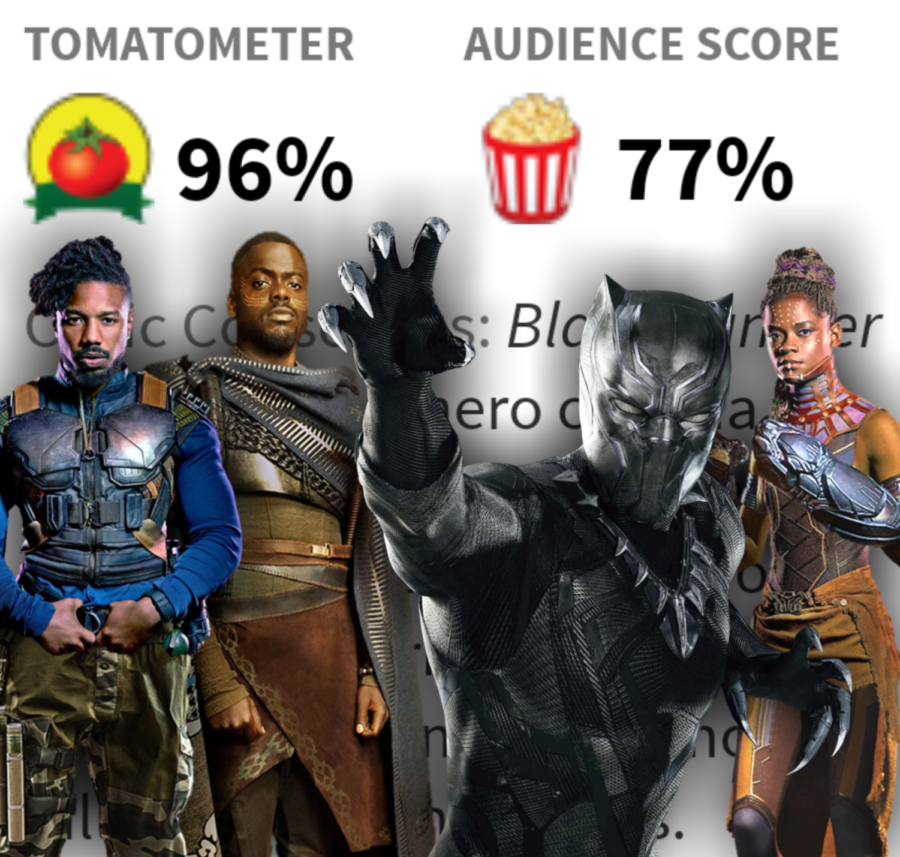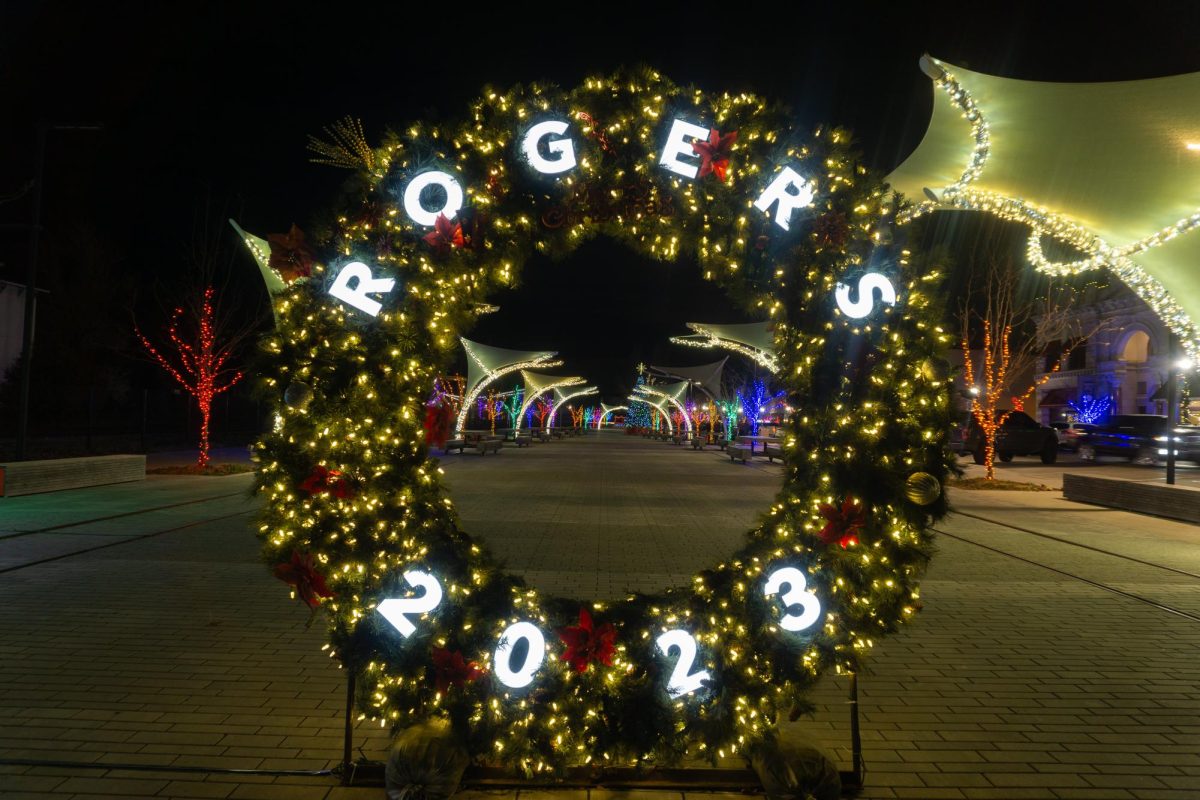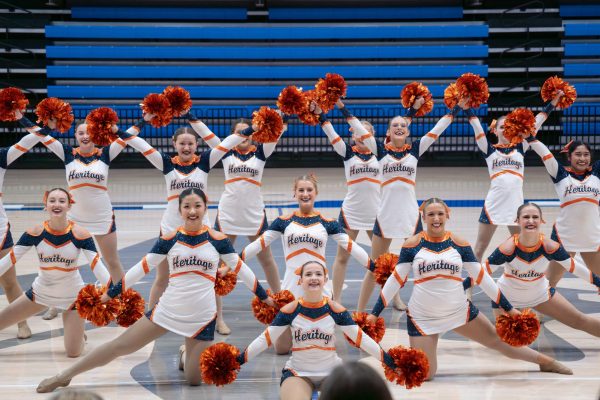Black Panther Review
Is this Marvel hit superhero film as good as everyone says?
February 23, 2018
Marvel’s February smash hit, Black Panther, has been met with overwhelming critical acclaim and record-breaking box office sales. Following up on the titular character’s debut in Captain America: Civil War, this film has not only been credited as a milestone for superhero flicks, but as a milestone for films as a whole. With its all-black lead cast and black superhero, the film considerably stands out among other Marvel movies. But is the film really that good? Here’s what I think.
Just for a moment, set aside the universal praise of Black Panther‘s black cast and social commentary, on which most of the reviews are centered. It’s definitely something to commend the movie for, but it shouldn’t reflect its entire mark of quality. Reviews for Black Panther tend to only dive into these factors rather than other crucial elements that make movies great, such as narratives and special effects. Almost every review I came across only spoke of the film’s social commentary and innovative cast, but almost nothing of its dialog, pacing, CGI, and characters; all of which I’m going to talk about.
Writing and Pacing
One of my biggest problems with Black Panther is with the writing. Most jokes, for me at least, fell flat or felt forced. There’s even a “What are those?!” joke towards the beginning of the film, which garnered audible groans from audience members, me included. I can appreciate the film’s attempt to add humor where it may be necessary, but when the jokes are uninspired and simply unfunny, it causes problems. Not every joke is a misfire, however. One character that I feel is worth mentioning, M’Baku, makes some decent quips, though he’s not quite in the film enough to get into detail. Other than his, most jokes either don’t score on their own or mix poorly with others.
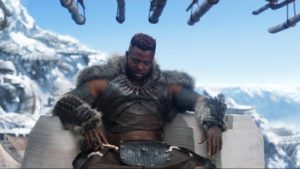
That’s not my only complaint, however. Much of the film’s narrative is built up on our hero, T’Challa, having to deal with being a king and not just a warrior. Without his father’s guidance, he feels constrained as to the qualities of both roles. Unfortunately, this internal conflict is barely touched on in the film itself. In fact, for most of the film, I was convinced that he was great at being both king and warrior, which devalued the plot point entirely. He stayed an excellent warrior and an honorable king the whole movie, only ever truly confronting the conflict in dream sequences. By the end of the film, it felt like he hadn’t changed much at all from the warrior he was at the beginning. That’s a concrete issue to consider when your protagonist’s supposed main conflict is dealing with this dilemma, and much of the early dialog is focused on it.
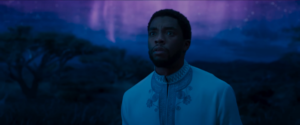
While the film certainly has its moments, there’s far too many clichés stuck to its narrative for me to get invested. Not once did I wonder, “What’s going to happen next?”, thanks to the film’s predictable dialog, narrative sequences, and general pacing. It plays out as your typical, run-of-the-mill Marvel flick, which isn’t necessarily a bad thing right off the bat, but with this movie, I didn’t experience anything new or uniquely exciting. Every moment aside from a few interesting sequences at the beginning felt too predictable to enjoy, and I had a discouragingly accurate idea of how the story would conclude by the second act alone.
Effects
It comes as no surprise that Black Panther is packed with CGI and other effects. It’s a Marvel action flick, so that’s a given. There’s no shortage of coordinated fight scenes and immense set piece backgrounds, with the primary location being a high-tech, hidden African country in a fortified jungle. This abundance of special effects is why it pained me to see them done so averagely in the film.
Almost every action scene looks too artificial to convey a sense of real combative tension. This is especially the case when T’Challa fights the antagonist in his (admittedly epic) panther suit. These sequences are almost laughable, as the suited warriors clash in a Mortal Kombat-esque style, flipping around in a blur of flailing motion.
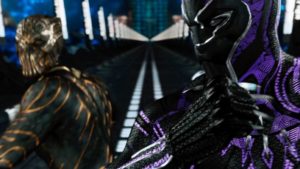
While these were definitely the worst effects the film had to offer, they obviously didn’t make up the whole experience. Another action sequence worth mentioning takes place in a high-speed chase towards the beginning. Our titular panther rides on top of a remotely-controlled car, in pursuit of a notorious villain. The scene certainly has some impressive action, as advertised, but it still falls into the same category as most of the mediocre effects in the film.
Not much needs to be said about other action scenes and fictional set pieces. I was either mildly unimpressed or just flat-out disappointed at the special effects throughout. It saddens me to say that the same goes for the main set piece of the film, the technologically advanced country of Wakanda. Not once did I feel that it was really there in the background or in establishing shots. The entire country seemed more like a fighting game background than a real high-tech citadel, a degrading step down from last year’s magnificently crafted Asgard in Thor: Ragnarok.
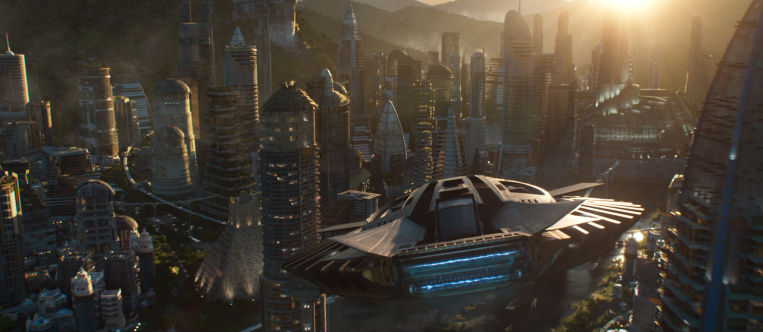
Special effect quality isn’t everything, but for a high-budget Marvel film like this, I expected more. I never felt like I was watching an intense fight or seeing a beautiful, hidden African paradise. It all looked artificial, specifically compared to more visually impressive MCU predecessors like Thor: Ragnarok and Guardians of the Galaxy 2.
Characters
The final qualm with Black Panther that I think is worth mentioning is its characters. While I admire the actors’ performances (especially Chadwick Boseman as T’Challa and Andy Serkis as Ulysses Klaue) in the film to a degree, I don’t think they were given much to work with. Every character has a “been-there-done-that” feel, tying into my previous criticisms of the film’s prolonging clichés.
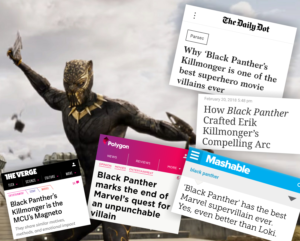
Michael B. Jordan’s character, Erik Killmonger, serves as this action flick’s main baddie. But as with many villains, we’re left to question whether or not he really is bad by the end. Most reviewers and media outlets have labeled his character as the MCU’s “most complex villain” and even “one of the best movie villains of all time”. Frankly, I don’t see it. He’s definitely interesting, with his strong sentiment towards Wakanda’s unwillingness to share their technology with less fortunate civilizations being a driving force behind his lifelong quest. But as with almost every other character, there’s nothing that makes him totally unique, let alone the MCU’s best villain. His backstory wasn’t nearly as richly complex and unique as people claim; what I saw was the standard, “You killed my father, and now I’m gonna kill everyone you love!” synopsis. And while his plan to make Wakanda a world power and bring it out of the shadows adds new elements, it doesn’t strengthen the clichéd backstory as much as it should. He’s simply a bland villain with a revenge complex. Certainly not the MCU’s most complicated villain, nor its best villain overall.
T’Challa’s father, T’Chaka, makes a couple dream sequence appearances throughout the film (having been killed in a terrorist attack in Civil War), where he gives T’Challa advice on how to move on without him. I enjoyed these bits, even if they, too, didn’t present anything new to the formula. The reason I bring them up is this: T’Challa never seems to change. From beginning to end, he remains the honorable warrior he always was. Some slight changes occur when he finds out more about T’Chaka’s past and Killmonger’s, but it doesn’t break the ice to any degree. He eventually decides to spread Wakanda’s technology to other parts of the world as Killmonger intended; however, that doesn’t constitute an internal change in his character.
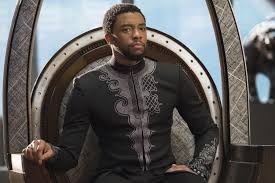
Even at face value, the characters of Black Panther don’t excel at any particular qualities. Nothing stands out about them for me, with a protagonist who stays mostly static throughout the film and an average villain with clichéd motives. There’s not much to dig into.
Conclusion
Don’t get the wrong idea; I still enjoyed this film even with its numerous flaws. It’s hard to say what I actually liked enough to mention, but I still think this Marvel action flick has its merits. I’m giving Black Panther a firm 4/10, and I recommend that you go see it if you’re into superhero films. However, its predictable and clichéd writing, mediocre effects, and well-acted but uninteresting characters hold down this film from receiving a higher rating from me. All in all, I definitely expected more from Marvel with this one, especially since Black Panther is one of my favorite superheroes and this was one of my most anticipated movies. It’s not without flaws, and it certainly isn’t Marvel’s best blockbuster, but it has enough footing to make it worth checking out.



